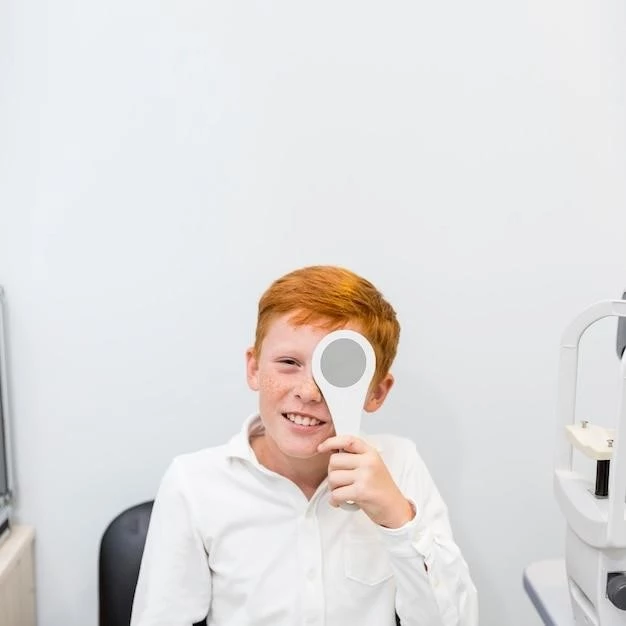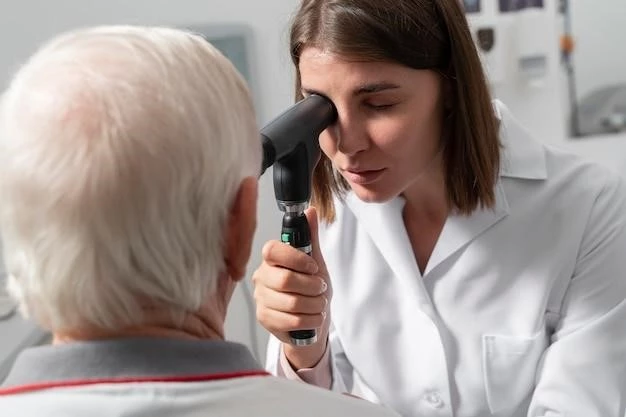Introduction
Disease⁚ Hypogonadism retinitis pigmentosa is a rare condition characterized by a combination of hypogonadism (low testosterone), retinal degeneration, night blindness, and progressive vision loss. This genetic disorder impacts both reproductive health and eye function.

Symptoms
The symptoms of Hypogonadism retinitis pigmentosa include low testosterone levels, night blindness, progressive vision loss, and infertility. This rare genetic disorder manifests with retinal degeneration affecting both reproductive health and eye function.
Reproductive Health
Hypogonadism retinitis pigmentosa can have implications for reproductive health due to the hormonal imbalances it causes. Low testosterone levels can lead to infertility, affecting the individual’s ability to conceive. It is crucial for individuals with this genetic disorder to consult with endocrinologists specializing in reproductive health to explore hormone therapy options to address the hormonal deficiencies. Maintaining reproductive health and seeking appropriate treatments can help individuals manage the effects of Hypogonadism retinitis pigmentosa on fertility.
Vision Loss
Retinitis pigmentosa, a key feature of Hypogonadism retinitis pigmentosa, results in progressive vision loss and night blindness. This rare genetic disorder leads to retinal degeneration, affecting the individual’s vision over time; Individuals with this condition should seek prompt evaluation and ongoing care from ophthalmologists specializing in eye diseases. Vision support, including visual aids and low vision rehabilitation, can help individuals maintain their quality of life and independence despite the challenges posed by the progressive retinal degeneration associated with Hypogonadism retinitis pigmentosa.
Diagnosis
Diagnosing Hypogonadism retinitis pigmentosa involves thorough genetic testing to identify the specific genetic mutations associated with this rare condition. Consulting specialists, such as ophthalmologists and endocrinologists, is essential for a comprehensive evaluation and accurate diagnosis of this complex genetic disorder. Early diagnosis enables timely interventions and appropriate management strategies to address the symptoms related to both reproductive health and vision loss.
Genetic Testing
Genetic testing plays a pivotal role in diagnosing Hypogonadism retinitis pigmentosa by identifying the specific genetic mutations responsible for this rare condition. Through comprehensive genetic analysis, healthcare providers can pinpoint the underlying genetic abnormalities linked to this complex disorder. This information is crucial for understanding the disease’s progression and tailoring personalized treatment plans. Individuals suspected of having Hypogonadism retinitis pigmentosa should undergo genetic testing under the guidance of specialists to confirm a definitive diagnosis and guide appropriate management strategies.
Consulting Specialists
Due to the complex nature of Hypogonadism retinitis pigmentosa, it is imperative for individuals to consult with a multidisciplinary team of specialists to address the diverse symptoms of this genetic disorder. Ophthalmologists specializing in retinal diseases and endocrinologists with expertise in hormonal imbalances play key roles in evaluating and managing the vision loss and reproductive health aspects of the condition, respectively. Collaboration among specialists ensures a comprehensive approach to diagnosis, treatment, and ongoing care for individuals affected by Hypogonadism retinitis pigmentosa, maximizing the effectiveness of interventions and improving quality of life.
Treatment
The treatment of Hypogonadism retinitis pigmentosa involves hormone therapy to address low testosterone levels and vision support to manage progressive vision loss. Hormone therapy administered under the supervision of an endocrinologist aims to optimize hormonal balance, while vision support strategies, including visual aids and rehabilitation, help individuals cope with the challenges of retinal degeneration associated with this rare genetic disorder.
Hormone Therapy
For individuals with Hypogonadism retinitis pigmentosa, hormone therapy is a crucial component of treatment to address the hormonal imbalances, particularly low testosterone levels. Endocrinologists oversee hormone therapy, aiming to optimize hormone levels and improve overall health. By restoring hormonal balance, this therapy can help mitigate symptoms related to reproductive health issues and enhance the individual’s well-being. Close monitoring and adjustments by healthcare providers are essential to ensure the effectiveness and safety of hormone therapy in managing the complexities of this genetic disorder.
Vision Support
Individuals with Hypogonadism retinitis pigmentosa benefit from vision support strategies to manage the progressive vision loss associated with the condition. Ophthalmologists may recommend visual aids, specialized devices, and low vision rehabilitation to enhance the individual’s visual function and quality of life. Vision support aims to optimize the remaining vision, improve daily functioning, and promote independence for affected individuals. Collaborating with eye care professionals can help individuals navigate the challenges of retinal degeneration and maintain their visual abilities to the best extent possible despite the vision changes caused by Hypogonadism retinitis pigmentosa.
In conclusion, Hypogonadism retinitis pigmentosa is a rare genetic disorder characterized by a combination of hormonal imbalances, reproductive health issues, and progressive vision loss. Diagnosis through genetic testing and collaborative management involving specialists in endocrinology and ophthalmology is critical. Treatment strategies such as hormone therapy and vision support can help individuals with this complex condition maintain their health and quality of life. By addressing both the hormonal and visual aspects of the disease, healthcare providers can offer comprehensive care tailored to the unique needs of individuals with Hypogonadism retinitis pigmentosa.
